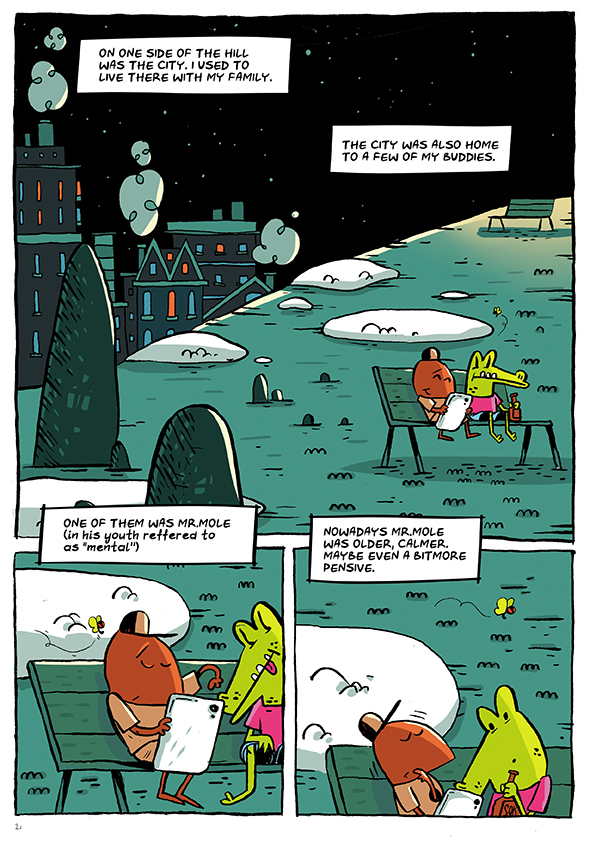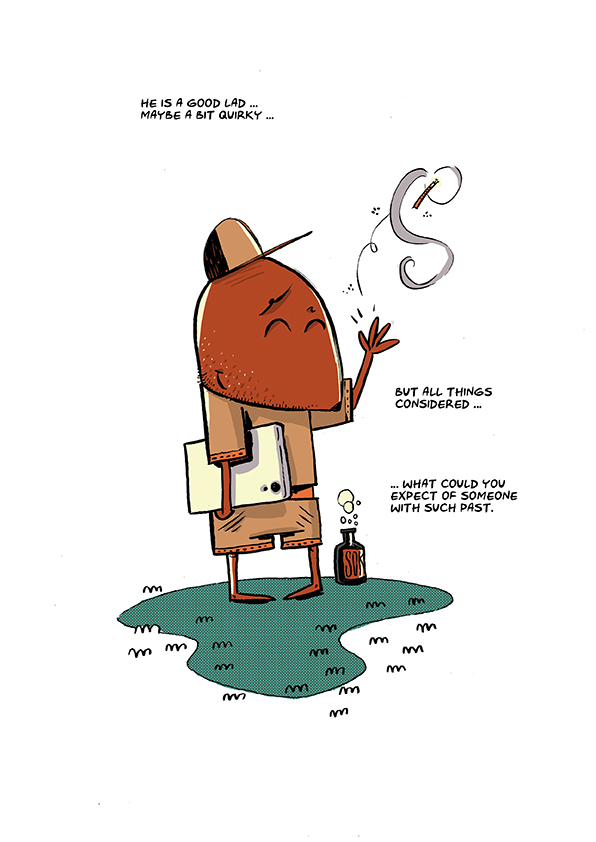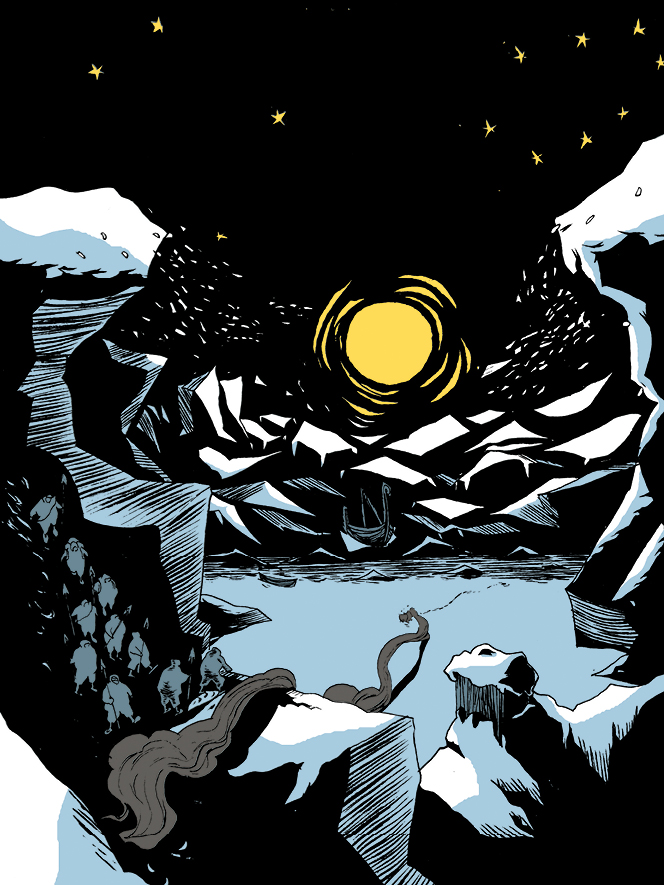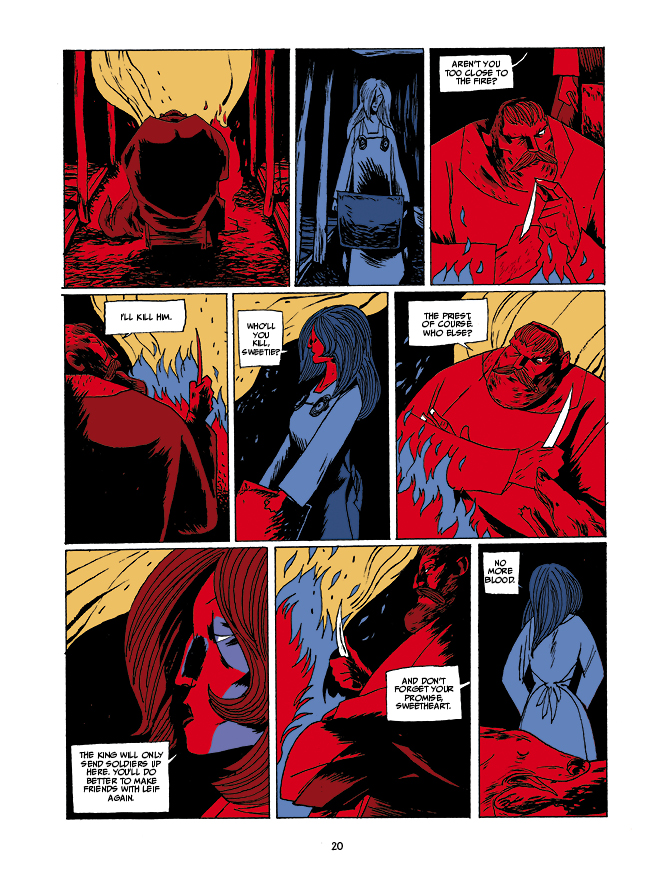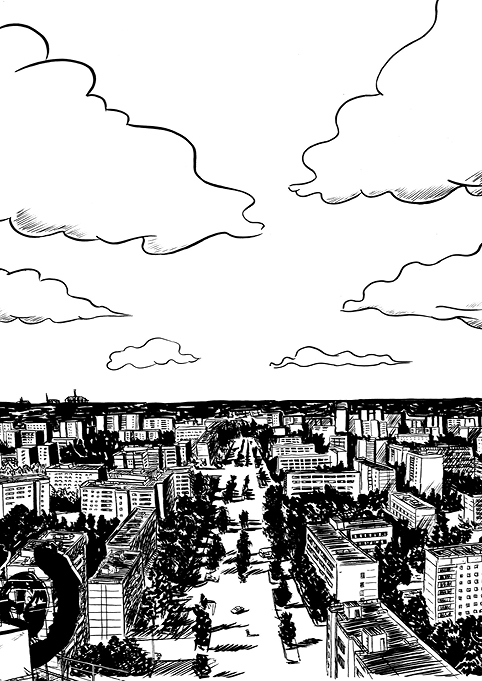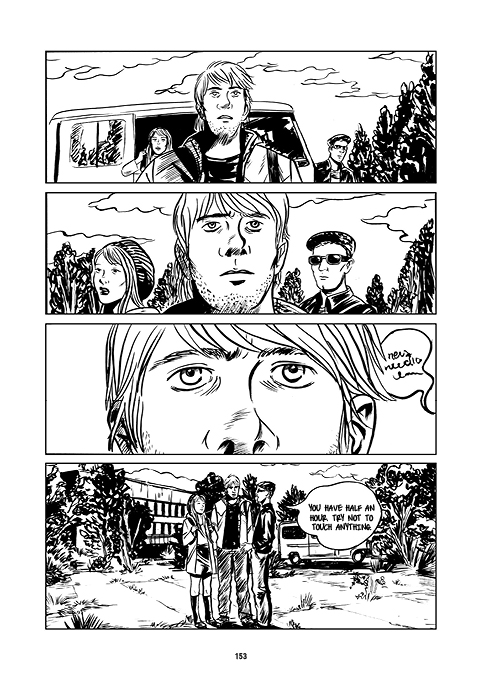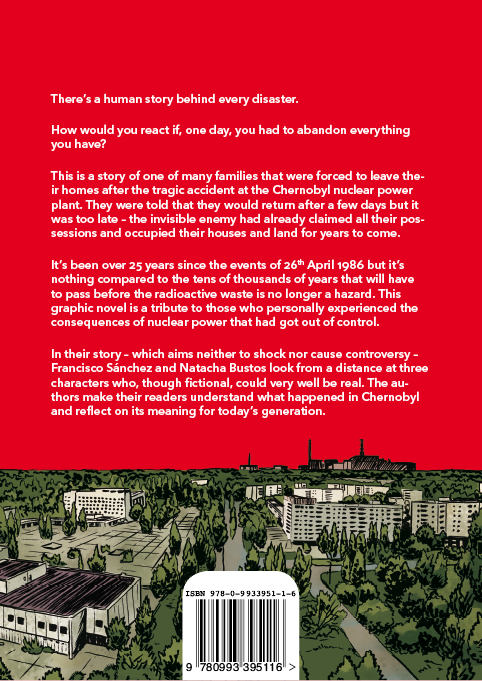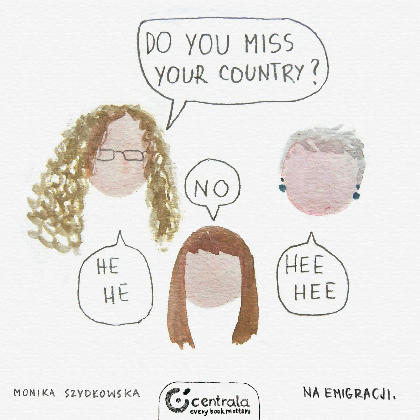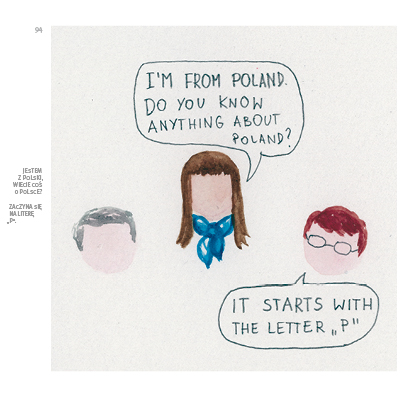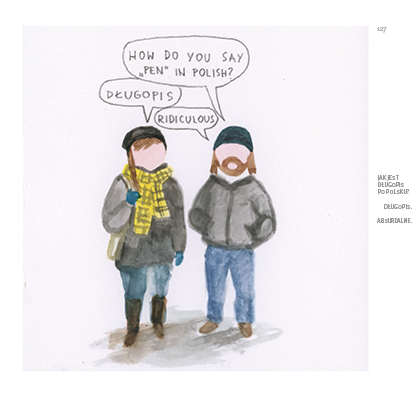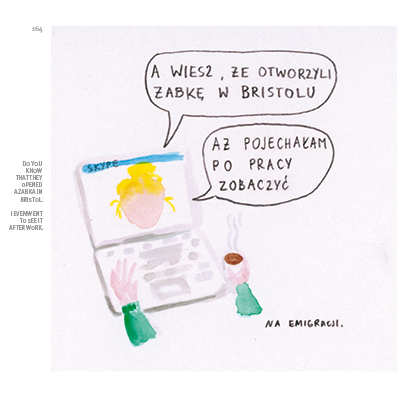“A delightfully bizarre celebration of friendship and the bonds of music. Engagingly chaotic and pulsing with energy.” – Andy Oliver, Broken Frontier
When Norbert asked me to write an introduction to his comic I was honoured, but also a little lost. I have never attempted something like that before and I didn’t know where to start? With a wise quote? Cultural reference? How to tie it all together?
Right now I am literally just a few minutes after visiting Casa Batlló, probably the most complex realisation of Antonio Gaudi, the famous modernist architect and visionary from Catalonia. I am going to tell you one thing- this comic is like this building. Via its subtly bent doors it invites [you] into its remarkable interior full of intricately twisted lines, how very pedestrian in their application. Because, all appearances aside, Casa Batlló is a regular tenement building. There is probably nothing more prosaic then that for a building. But for its inhabitants, living in the interiors inspired by the sea flora and fauna, must have been a real adventure.
Likewise “Staring from the Hill” simply talks about the every-day reality of a group of friends, who above all cherish their mutual company, music and juice. And similar to Gaudi’s works all of that is served with a handful of surrealism, love of colour, light and form, and gigantic dose of vision. Flipping the pages is like climbing up a twisted staircase – you never know what might lurk around the next bend. There are only two things which are certainone, that shortly you will reach yet another astounding floor, and the other, that at the end of it you will be lead to the rooftop adorned with a ceramic dragon, where you can see a really beautiful panorama of Barcelona.
This comic really is like Gaudi’s architecture. You will find out yourselves. Just let the rhythm of the staircase carry you. The only remaining thing is to wish the author that, like the architect of La Sagrada Familia, he may be appreciated by us – his contemporaries. And that thanks to this he obtains the means necessary to allow us to climb the stairs of his imagination towards the sky, which, as you will find out after reading “Staring from the Hill”, will never be the same again.
Jan Sidorownin
Passeig de Gràcia, Casa Batlló
13.01.2016 Barcelona
Release Autumn 2016



